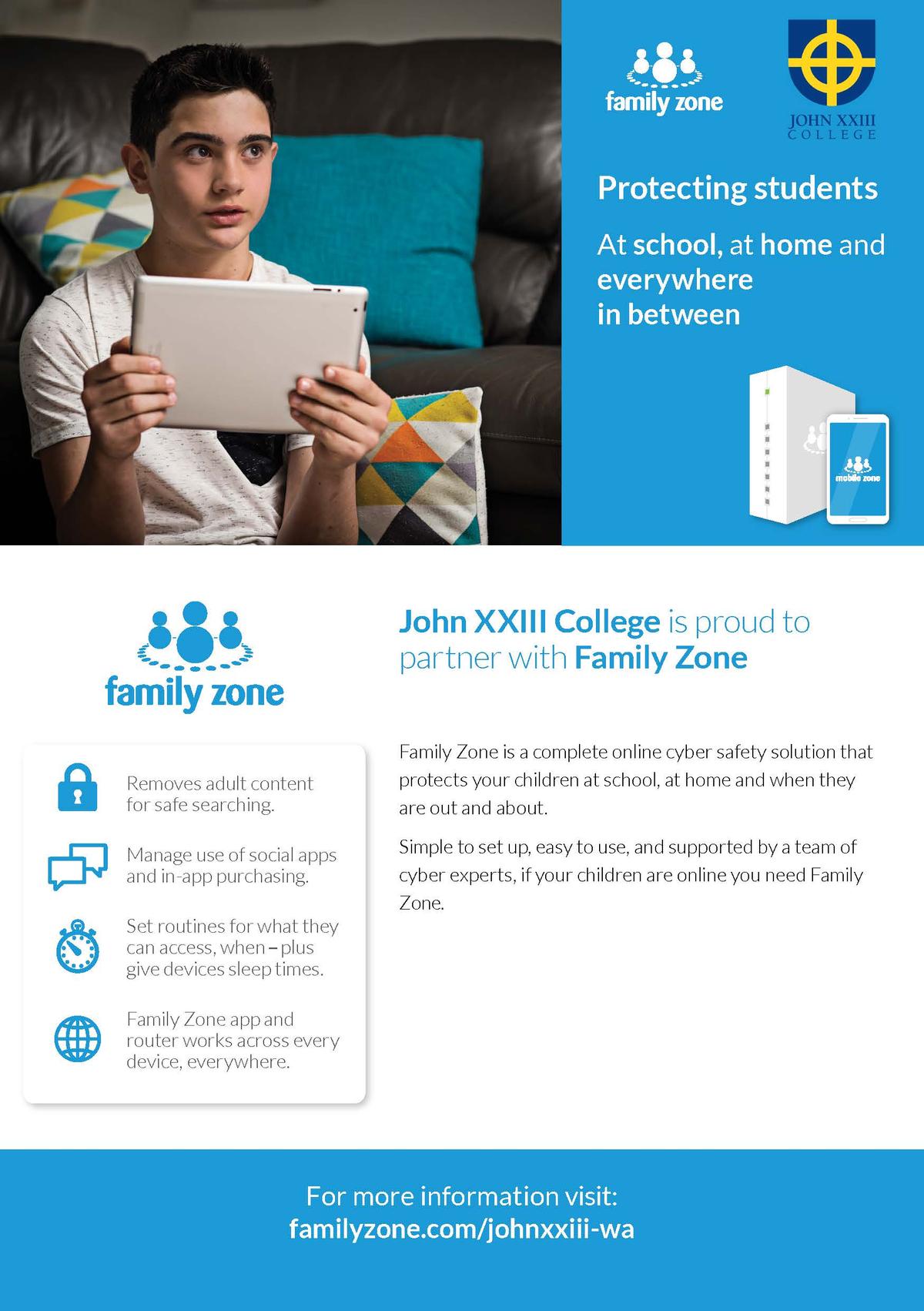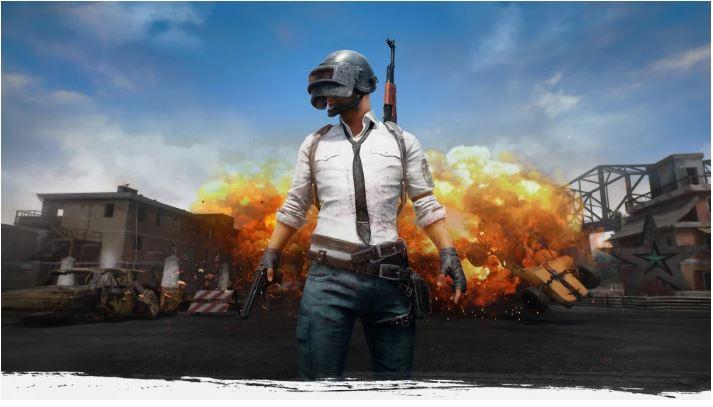Family Zone & Cyber Safety

Download Family Zone
Make use of the Family Zone Accounts which we are offering to John XXIII College families for free, as part of our College contract negotiations until 2020.
By setting up a private Family Zone account, you can apply age-appropriate parental controls on every device your child has access to, in any location. To find out more visit https://www.familyzone.com/johnxxiii-wa
Cyber Safety Webinar: Advanced with Family Zone
7pm, Tuesday, 10 September
If you've been using Family Zone for a while and are keen to learn more about our advanced features, then this webinar is for you!
Features, such as;
- Locations
- apps
- Reports
- Age profile Controls
- Routine overwrites
- Website whitelisting
- Shared Parenting
The College has partnered with Australia’s leading provider of cyber safety and digital-awareness services, Family Zone. As part of our contract negotiations until 2020, we have managed to secure a number of Family Zone Accounts (Family Packs) which we are offering to John XXIII College families for free for a trial period.
Webinar will take place at 7:00pm on Tuesday, 10 September 2019.
Register here: https://familyzone.zoom.us/webinar/register/WN_fHLPRm_NQvuBxdbwFZCGOQ
PUBG Mobile v Fortnite: The latest battle royale
In the battle royale for our kids’ gaming attention, a new version of PUBG (Player Unknown’s Battlegrounds) has already knocked Fortnite off its perch. If your child is part of the trend, what do you need to know about this latest challenger?
The makers of Fortnite earned $2.4 billion last year. Not bad going for a “free” game. So it’s no wonder that other developers have followed the money and are starting to release free versions of their own games, optimised for the devices kids are most likely to have in their back pocket: mobile phones.
PUBG Mobile, from Chinese developers Tencent, is one of them. A slimmed-down version of the highly popular massive multiplayer online game Player Unknown’s Battlegrounds, which launched in 2017, PUBG Mobile has already grabbed the top spot. In 2018, it was the most installed battle royale game in the world, with nearly 300 million downloads. That’s 200 million more than Fortnite.
PUBG’s basic outlines will sound suspiciously familiar to Fortnite fans. Basically, it’s a winner-take-all, kill-or-be-killed scenario where the endgame is to be the last player standing. And yes, you also parachute onto an isolated island, where your survival skills and talent for weaponry will be tested constantly. Every player is both the hunter and the hunted in PUBG Mobile, with 99 others just itching to put a target on your back, or destroy you in a hail of bullets.
Deja vu for Fortnite fans
Also like Fortnite, it’s free to play. But in-app purchases ensure it will be a goldmine for developers - and a potential nightmare for parents’ credit card accounts. PUBG also features in-game chat, which is typically rife with obscenities and offensive remarks. It is completely unmoderated. (Chat can be easily turned off in settings. But then again it can also be easily turned on.)
But how is PUBG Mobile different?
In a nutshell, it’s the violence - or more specifically the realistic depiction of violence. In Fortnite, killing and weaponry - and the overall design of the game - are unmistakably cartoon-like. Fortnite does not attempt to make bloodshed or the battleground look or feel authentic.
PUBG takes an entirely different tack. Weapons like rifles, machine guns, grenades and crowbars are realistic-looking - and so is the blood spatter. (In a strange twist, the game was actually shut down in China - its country of origin - for too-realistic depictions of gore, prompting a version of the game using green blood.)
If your child is playing, or wants to play, PUBG Mobile, Family Zone cyber experts recommend
Talking about the violence. You don’t necessarily need to forbid your child to play shooter games. But you do need to talk him or her about on-screen violence, and its possible impacts on real-life behaviour.
For example, some observers have pointed to a relationship between the mass shootings plaguing the US, and the popularity of violent online shooter games. What is the evidence for such claims?
How does your child feel after spending time playing a battle royale game? How if at all does it affect his or her mood? You might suggest keeping a “mood log” to help understand what effect gaming may be having.
Talking about bullying, harassment and other toxic online behaviour. We know for a fact that any game that includes live chat will attract inappropriate and possibly harmful encounters with other players - some of them adults. It’s best to prepare your child for this before he or she encounters it.
Together, brainstorm some ways to deal with offensive chat, and discuss ways for your child to be a considerate online gamer … even when they’re shooting the enemy!
Family Zone has rated PUBG Mobile “Be Careful.”



